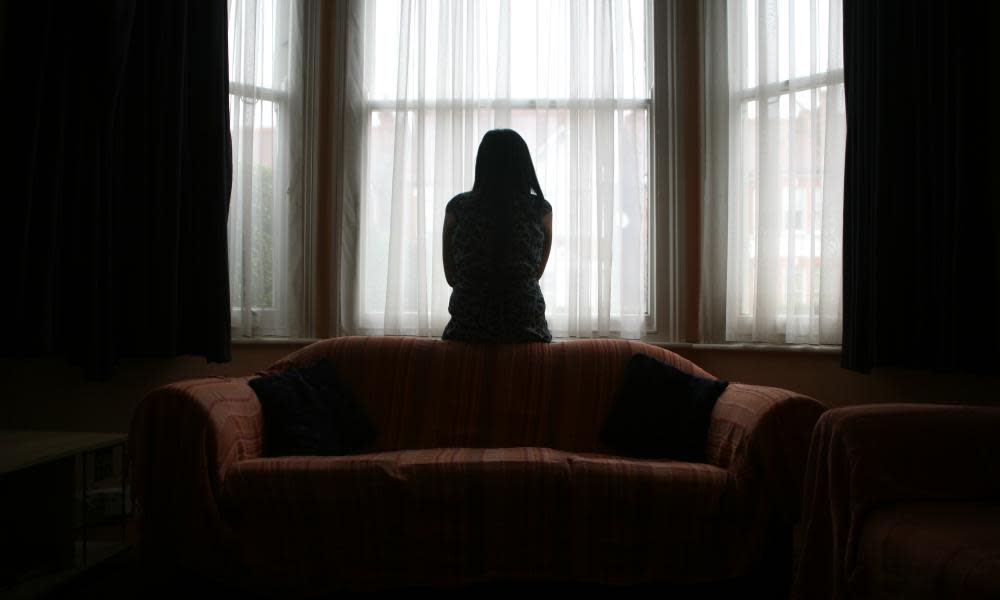Sexual assault victims more likely to have anxiety and depression – study

Women who have experienced sexual assault or harassment are more likely to suffer from poor sleep, anxiety, high blood pressure and symptoms of depression, new research has revealed.
While the study cannot prove that the events are behind the greater likelihood of such health problems, researchers say it highlights an important link.
“Experiencing sexual harassment and/or assault not only has implications for your quality of life, social functioning and job performance, but also for your mental and physical health,” said Prof Rebecca Thurston, first author of the study from the University of Pittsburgh.
The study, published in the journal Jama Internal Medicine, examined interviews from 304 women from Pittsburgh between the ages of 40 and 60 about their experiences of sexual harassment and assault. The women’s height, weight and blood pressure were measured, while signs of depression, anxiety and sleep problems were picked up by screening questionnaires.
The results reveal that 19% of the women had experienced sexual harassment at work, while 22% had experienced sexual assault at some point – figures the team say are lower than found nationwide, possibly because the researchers excluded women with various health issues such as smoking from the study.
After taking into account factors including age and medications, the researchers found that women who had been on the receiving end of sexual harassment had almost four times the odds of having high blood pressure and just over twice the odds of having poor quality of sleep than those who had not.
Those who had experienced sexual assault also had a greater chance of poor sleep – about four times the rate of women who had not been sexually assaulted – and were also more likely to have symptoms of anxiety and depression.
The findings come just months after another study showed that four out of five teenage girls who experience sexual assault were found to have mental health problems in the months that follow.
Jemima Olchawski, chief executive of Agenda, a coalition of charities working with vulnerable women and girls, said society has become more aware of the prevalence of harassment and abuse against women following the #MeToo movement, but that the repercussions of such experiences are still not fully appreciated.
“Too often the lasting impact it has on women’s mental wellbeing is ignored, with women being told to toughen up or get over it,” she said.
Olchawski said all women who seek help for mental health issues should be asked about whether they have experienced abuse or violence, and be offered support.
“This research gives yet more evidence of the impact of violence and abuse on women’s mental health,” she said. “But mental health services often fail to recognise this link, or to even ask women about their experiences of abuse.”
In a second publication in the journal, researchers in Germany reported on a survey of sexual misconduct experienced by doctors, specialists and surgeons at a large hospital in Berlin in 2015. The team found all four of the individuals who identified as transgender, intersex or nonbinary reported they had experienced sexual misconduct, while results from 737 men and women revealed that just over 76% of women and almost 62% of men had also had such experiences, with most perpetrators being colleagues.
Sexualised speech, obscene gestures and unwanted offers of sex were all more commonly experienced by women than men, with more than a fifth of women saying they had had unwanted physical contact. Women also more often said the perpetrator was senior to them.
Sabine Oertelt-Prigione of Radboud University Medical Center in the Netherlands, who co-authored the report, said the team had encouraged both men and women to take part, and that the survey had been carried out before the #MeToo movement. But she said the study reveals sexual harassment can affect anyone in the workplace and can affect individuals’ ability to work.
“It is an organisational, cultural issue that needs to be tackled as such,” she said. “It is not certain rotten apples within the community that behave poorly … we are working in an environment that somehow has established certain rules that might promote a certain type of behaviour.”

 Yahoo News
Yahoo News 
